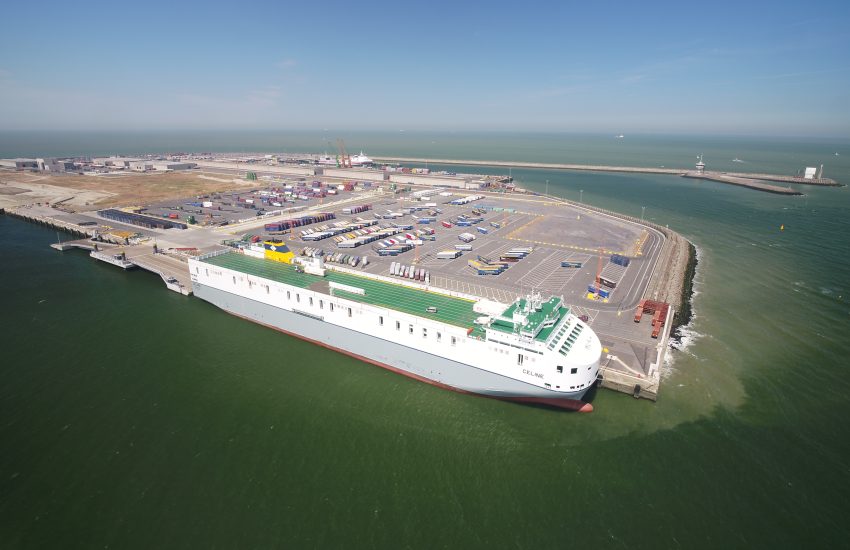On February 1, CLdN ro-ro signed a contract with Hyundai Mipo Dockyards for two hybrid 8,000 lane meter ro-ro vessels. The order forms part of CLdN’s long-term growth plans and further strengthens its current role as greenest ro-ro operator in North-Western Europe. Both vessels will be delivered in the first half of 2025.

After the delivery of the new 5,000 lane meter LNG vessel Faustine at the end of last year and the expected delivery of her sister Seraphine later this month, CLdN has now placed an order or for two new super-efficient 8,000 lane meter vessels with a technologically advanced propulsion train. The order represents the largest investment in CLdN’s history and is a result of two years of intense engineering and development together with Hyundai Mipo Dockyard.
The new vessels, cargo wise, are modelled on the two 8,000 lane meter ships M/V Celine and M/V Delphine which CLdN operates since 2017. These two ships still hold the enviable title as the largest short sea RoRo vessels operating in the world today, having a proven track record and delivering reliability with unparalleled flexibility for customers cargoes.
Hybrid design
The new ships, built in South Korea, will be equipped with two LNG dual fuel main engines (ME-GI type) of 11MW each as well as two electric propulsion motors of 6MW each. In full electric mode the ship can achieve a cruising speed of 16 – 17kn. Both vessels will also be future proofed, to allow expansion or integration of technological advancements as time moves on. Compared with CLdN’s largest vessels currently in operation, the new ships will further reduce GHG emissions by 40% and will be NOx TIER III compliant.
Reducing carbon footprint
In 2021, CLdN announced they are the top performer amongst their ro-ro shipping peers in Northwest Europe for CO2 emissions per tonne of freight carried. These new vessels will strengthen CLdN’s current position as greenest ro-ro operator and push its ambition to further reduce its carbon footprint.
By investing in technologically advanced ships and terminals, CLdN enables its customers to improve their carbon footprint and support them at the same time in making their supply chains more efficient and robust.